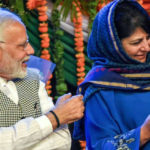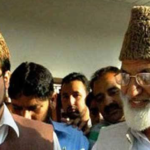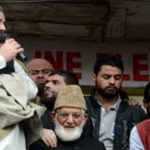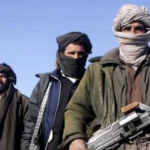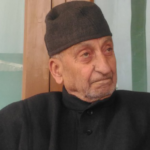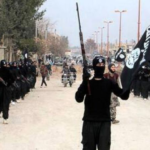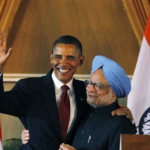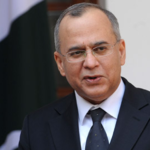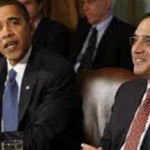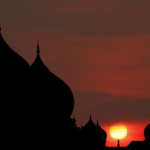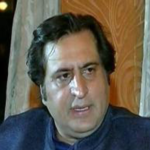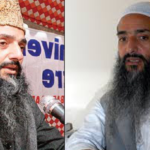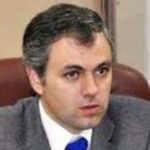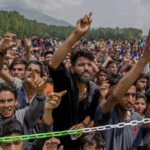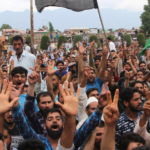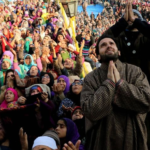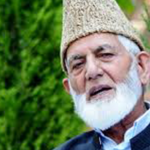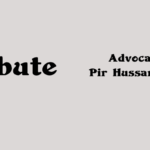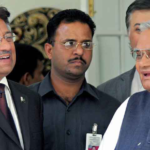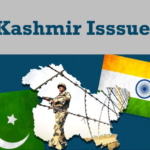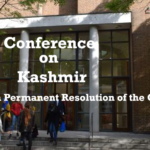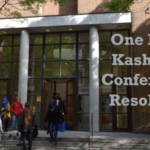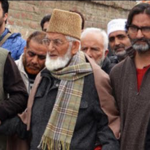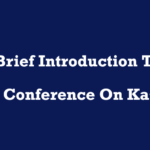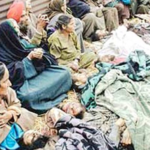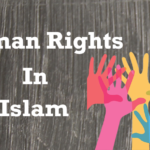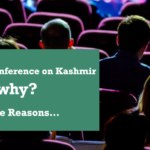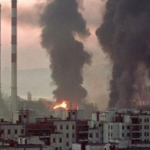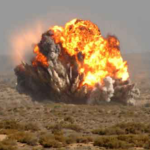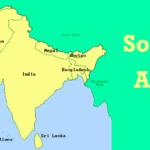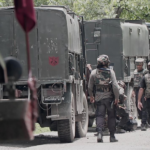September 11, 2016
As I write these lines, the current uprising has entered its third month. By all standards it is an extraordinary feat defying expectations not only of foes, but friends as well, myself included. That said, we are not talking here of a show of performance i.e. how best the actors have performed, rather it is a people’s movement geared to the achievement of concrete objectives, our focus, therefore, should be how far the Movement has been, and/or is going to be, successful in delivering those objectives. That the Movement has sustained for so long is in itself a fact of enormous political significance, but, nonetheless, some areas of concern need to be identified, and the enemy’s strategy looked at.
July 29, 2016
Once again we have an uprising in Kashmir. Essentially there is nothing new about it, apart from the fact that this time it was Burhan Wani”s custodial killing, and subsequent brutality by government forces that added fuel to the already existing fire, and brought people on streets.
Kashmir”s well-wishers everywhere are deeply concerned about two things, namely: how long the current uprising will sustain and, more importantly, how effective it will be in delivering results. In these lines, I will first make some constructive comments on the ongoing Freedom Movement (Hurriyat G, Hurriyat M and others), and then towards the end, in all humbleness, make a practical suggestion with sustainability and effectiveness as the two main considerations.
May 14, 2015
The talk of unity among the pro-freedom groups in Kashmir is as old as the current movement. Recently some Hurriyat leaders, among them Syed Ali Shah Geelani, the senior leader, have been talking about it. Here, I intend to make some submissions in this regard, but first let me allude to the bigger problem of which this is only a symptom. The bigger problem is the non-existence of a genuine as opposed to fake, manoeuvred, and engineered (by intelligence agencies) politics in Kashmir. This is an issue of far greater importance with huge implications for the future of Kashmir and the socio-cultural progress of its people.
October 29, 2012
“What is the recent blasphemous film ‘Innocence of Muslims’? Do they represent speech or ridicule and abuse? Making fun, using filthy language, mockery and ridicule, does it constitute speech? No, it does not, so the question of freedom does not arise in the first place. The United States by invoking freedom of speech, is actually advocating freedom to abuse, denigrate Islam, the values of Islam, its sanctities, and its noble personalities,” Kashmiri author and political analyst Dr. Syed M. Inayatullah Andrabi said in an interview with Fars News Agency.
June 16, 2011
Pakistan, alongside India, emerged as a sovereign state in 1947, but unlike India it could not put in place a credible system of governance, and the country has been oscillating between Army rule and the civilian. Without going into the analysis and discussion of individual events and situations, if we look at the situation of Pakistan, as it has developed over the past 65 years, the most profound and undeniable statement that can be made is: Proper and genuine politics have not developed in Pakistan till date. We could move further on to substantiate this statement, but will not, simply because this, per se, is not our subject of discussion here. However, it would be worthwhile to note that the biggest event that happened to Pakistan after its emergence in 1947 was its break-up in two in 1971.
January 27, 2011
There have been some awkward developments in Kashmir in recent weeks. The APHC leader Prof. Abdul Ghani Bhat has made some unusual statements recently saying that time had come to speak the truth. The learned Professor may agree that he has not made any disclosures in the real sense of the term; both, the informed elites as well as common masses in Kashmir know fairly well what has been going on in Kashmir for the past 21 years, who did what and why. Prof. Bhat should be knowing it fully well that in politics what is said is as important as when it is said, and even where. This is because political people understand things by their whole being, their faith, emotions, outlook, ideology, but they do things (speak out or any other action) on the basis of calculation.
January 27, 2011
Extremism has become a part of the modern day political vocabulary, but most often the word is used, rather misused for political purposes. It is because of this gross misuse of the word that the underlying concept is either totally misunderstood or least understood. Actually one would tend to disregard the need to understand the underlying concept, simply because there is nothing the word really stands for; it is simply the political motive of the user that determines the meaning of the word. For example, India would call anyone who calls it an occupier, or does something to force it out of Kashmir, an extremist, although there is no extremism involved here. As such, one might perhaps conclude that extremism is simply a label of convenience, and does not stand for anything definite in the real world. This, however, will be a hasty and erroneous conclusion.
December 5, 2010
President Barack Hussain Obama has come and gone. We are not going to analyze the outcome of this visit here, but only focus on some issues revolving around India’s ambitions for a higher power status, so manifestly evidenced by its overwhelming concern for a permanent seat in the United Nations Security Council (UNSC) and America’s approval of these ambitions. Since the relationship is not between two equals, the focus has to be mainly on how India is going to be used in the global power game.
February 26, 2010
Mr Salman Bashir, Foreign Secretary, Government of Pakistan held a press conference in New Delhi at the conclusion of foreign secretary level meeting held between India and Pakistan on 25/02/2010. A little earlier, his Indian counter part, Nirupama Rao also addressed the press, saying we talked about Kashmir but very briefly. Salman Bashir (henceforth SB), later said he disagrees with that, and that Kashmir was discussed at length. We are not going to analyze the results of this secretary level meeting, nor make any judgments about its success or otherwise, the purpose of this brief write-up is to seek the attention of readers towards what seemed to me a sort of contradiction or incoherence in SB’s press briefing. It was not an explicit contradiction, certainly not a contradiction between his utterances, and, therefore, was not easily notable. However, some contradiction, incoherence or inconsistency, whatever you may choose to call it, did definitely exist.
January 8, 2010
In his address to the legislative assembly of Azad Kashmir at Muzaffarabad on 5th January, 2009, the president of Pakistan Mr Asif Ali Zardari, has made some very important points injecting new hope and energy into the Kashmiri freedom struggle. Apart from the routine stuff, and promises to AJK government, the president said something very meaningful, not often articulated by Pakistani rulers.
December 27, 2009
As more and more men and women with healthy minds start looking through the thick clouds of history to find out the pristine teachings of Islam as brought by the Noble Prophet, Mohammed Rasul-u-llah(SAAW), the blurred but a very real distinction, rather contradiction, between Arab imperialism inspired by Arab nationalism/tribalism and the political agenda of Islam also starts showing up. The purpose, great and lofty as it was, behind Imam Hussain’s expedition becomes easier to grasp. What happened at Karbala is already universally mourned by Muslims, and the number of mourners will keep growing, but no amount of tears can wash off the bloodstained fields of Karbala. However, the unique and historic moments of that Muharram have a lot to teach, but are we ready to learn? Let us briefly talk about one such great lesson:
April 21, 2009
Mr Sajjad Ghani Lone of Peoples Conference has now decided to migrate from Freedom politics to Puppet politics by announcing to participate in the Indian held elections. He was absolutely right when he said “I’m too little to deliver a blow to separatism”. In these lines, I am not going to comment on Mr Lone’s decision as such, but would like to make a point of wider relevance, relevant to Mr Omar Abdullah as well, with reference to this decision.
April 4, 2009
I have read with great shock the Friday Khutbah, Maulana Sowkat Ahmed Shah, President of Jamiat-e-Ahlihadess delivered at Gowkadal mosque Srinagar on 27/03/09. The Maulana quoted a hadith (saying) of the most beloved Prophet Mohammad(SAAW) to emphasize his point that stone pelting is prohibited in Islam, and hence the Muslim protesters in Kashmir should not throw stones on Indian armed forces which effectively includes the Indian Army, CRPF, BSF and the puppet Kashmir police. In this brief write up I intend to raise some points of fundamental nature with wider significance, obviously with reference to the cited hadith, but not focussing on the hadith as such. This is what our long standing friend, Professor(Dr) Massa’ari, a prominent Saudi dissident now living in exile in London will do after I finish my own part.
October 24, 2008
The National Conference president Mr Omar Abdullah in his first election meeting at Budgam on 22nd October has made an important political statement de-linking the election process from the resolution of Kashmir dispute. He said: “The elections will not have any effect on Kashmir issue. And whether people participate in elections or not, it will not affect resolution of Kashmir issue…” He further emphasized that the Kashmir dispute and the daily problems of Kashmiris were two different issues and they should not be clubbed together.
August 26, 2008
There have been unparalleled public demonstrations in the valley of Kashmir recently, and in terms of numbers at least, these demos might have surpassed those of 1990. The message that is absolutely loud and clear from this mass uprising is that India has miserably failed in killing the peoples’ sentiment for freedom despite the fact that after its armed invasion and occupation of the land of Kashmir in 1947 it has ruled the state on the basis of brute force either without or with a facade of democracy. Apparently the situation presents a very encouraging scenario, but on a slightly deeper reflection some worrying concerns emerge, and all does not seem to be well.
July 10, 2006
The question of moral legitimacy is the most crucial question in any human effort, particularly the one which involves a whole people. Among other ingredients, an important ingredient in bringing about the liberation of Kashmir from India, is the movement inside Kashmir challenging India’s occupation. At the end of the day, it is the ground situation in Kashmir that has pivotal importance. As regards its immediate objectives, this movement must ensure:
July 24, 2005
The renewed struggle by Kashmiris against occupation by India has left no ambiguity over the issue of Kashmir. The facts are crystal clear. Every one knows that there is a dispute over Kashmir between India and Pakistan, that the UN Security Council passed a resolution in 1949 outlining a solution by a ‘plebiscite’ that was accepted by India as well as Pakistan. Under the Resolution, both countries agreed to: 1) cease fire, 2) and hold a plebiscite to allow the people of Jammu and Kashmir to decide which country – India or Pakistan – they wanted to join. The fighting by the two armies did cease but the nightmare for the people began. They could not go across the cease-fire line; they could not meet their relatives or go to the Punjab and the Frontier Province of Pakistan as they had done for a hundred years to escape the harsh winters and in search of livelihood.
May 28, 2005
Geelani sahib must positively respond to Pakistan government’s invitation to travel to that country. However, he should take a Delhi-Lahore flight using an international route, and not board the Srinagar Muzafarabad bus for travel. There are reasons for both these suggestions. The reasons why Geelani sahib must go to Pakistan are:
March 5, 2005
Time and place determine the value of a thing. A carpet, for example, placed in a showroom at London or New York is a much more valued item than the same in a showroom at Srinagar. Not only place, time also makes difference: the same carpet if put on sale in peak season would fetch much more than it would in an off-peak season. That, however, is the realm of inanimate things whose value and worth lies in the eyes of beholder, one would not normally say the same thing about animate beings, much less about humans. Human beings have an intrinsic value and dignity, independent of external appreciation. However, that does not mean time and place do not have any relevance here; they are very much relevant, in a different way though, and yet again, in a much more crucial way.
November 2, 2004
President General Parvez Musharaff’s recent proposals on Kashmir spelt out on an Iftar reception on 25th October, 04 in Islamabad are highly important. Their real significance and productive value needs to be grasped by all those who have a sincere and genuine commitment to the Kashmir Cause. In the following lines I will try to, first, put these proposals in perspective, and second, argue for a proper response.
May 7, 2004
What is Kashmir issue? A lot of confusion surrounds this basic question. Quite often, we come across the statements that Kashmir problem is not a border dispute between two states, it is the question of the basic right of self-determination of seventeen million Kashmiri people. This statement typifies the confusion: it states the fact, while betraying the truth in a very fundamental sense. Mere self-determination is not what Kashmir issue is all about; it may find expression in those words, but in meaning and essence there is something deeper and more profound to it.
September 3, 2003
Kashmir issue has moved from being a mere truth to a crystal clear fact. As such one only needs to point to it to explain it—–things are so manifest and self-explanatory. In the past, a person in my position here, would have to put in some effort to explain what constitutes the issue of Kashmir. There are books, papers where Kashmir problem has been dealt with. But now we have a concrete situation that expresses the whole truth, all one needs is to look at it without bias or prejudice.
April 21, 2001
Coinciding with the 63rd death anniversary of the great poet-visionary Allamah Iqbal, Mahazi-Islami (occupied Kashmir) in collaboration with Al-Ansar (U.K.) is organising a one day conference on 21stApril, 2001 on the theme mentioned above in Brunei Hall of the School of Oriental and African Studies, University of London, London, U.K. Prominent political personalities and academic luminaries are expected to attend. The purpose of the conference is to highlight the need of a permanent resolution as opposed to ad-hoc solution of the Kashmir problem, so that peace is achieved on the basis of an equitable solution and not at the cost of it.
April 21, 2001
Commemorating the 63rd death anniversary of the great poet-visionary Allamah Iqbal, a one-day Conference on Kashmir was held on 21st April, 01 at Brunei Gallery, School of Oriental and African Studies (SOAS), University of London, London, U.K. The Conference was organised by Mahaz-Islami (Occupied Kashmir) in collaboration with Al-Ansar(U.K.), to highlight the more fundamental aspects of the Issue of Kashmir. The registration of guests started at 10.40AM, and the proper deliberations starting at 11.45AM, ended by 5.30PM, with a one-hour break for Lunch and Zuhr in between.
June 29, 2000
National Conference’s recent move of passing the so-called autonomy resolution could be easily ignored as a non-event, but what merits attention are the motives behind this futile exercise. Anyone in his or her normal senses will have absolutely no doubts about the fact that the exercise not only had a positive nod from Delhi, but was actually carried out on the behest of it: National Conference (NC) merely obeyed instructions from Delhi, and staged a noisy drama. The question that must be addressed is what is the game plan of the Brahmin establishment in Delhi? After liquidating a full generation of Kashmiri Muslim youth, what is the state of India up to? In the following lines let us look at some possible answers, and in the light of that, our response.
June 5, 2000
Mahazi-Islami, Occupied Kashmir, in collaboration with Al-Ansar, UK is organising a one-day world Conference on Kashmir in July, 2000 in London. A conference paper entitled ‘A Case for Holding World Conference on Kashmir’ describing, in some detail, the need, objectives and the themes for discussion, has been written by Dr Syed Inayatullah Andrabi, Convenor-in-exile, Mahazi-Islami, Occupied Kashmir, and is available on request. The conference will be the first of its kind, in the sense that it will seek to focus on the issues instead of mere events (Indian excesses or the heroic acts of mujahideen) in a non-partisan and rational way.
March 24, 2000
The ghastly murder of 35 Sikhs in Kashmir some days back has shocked the freedom-loving people in and outside Kashmir. Since the killings took place on the eve of President Clinton’s visit to India, it made far more impact than otherwise it would have. The other reason for the big-bang effect was the fact that Sikhs had become the target for the first time during the ongoing movement in Kashmir. The unfortunate event has been widely commented upon during the past 3-4 days. Most of the commentaries have, however, chosen to focus on ‘who did this?’, and that is quite natural, because in such an unusual case this is where the human mind points first.
October 4, 1999
The human rights debate, as a matter of fact, has got firmly entrenched in the contemporary academic and political agenda. There are definite reasons for it, to which we shall come in a moment, but what has to be noted at the very outset is, since the issue of human rights has been brought up by the West which is presently the dominant civilisation, the attitudes towards this issue by the rest of humanity are likely to be largely determined by the standard rules of power: anything coming from the West comes from a power-position and as such evokes two types of responses, namely, Conformist—mere acceptance for the sake of it, or Rejectionist—mere rejection—- again for the sake of it, both of which speak of defeatist complexes and an inability to independently look at the reality of things.
September 30, 1999
Kashmir has been in the news for almost a decade now. The present uprising that started in 1989, is not the first expression of Kashmiri peoples’ anger against India; there have been anti-India movements—secret and open both—–all along since 1947. However, the present mov’t being characterized by the radical method of popular militancy, did create a big bang effect, both, in and outside Kashmir. In Kashmir it gave a fresh hope to the masses and a boost to their imagination, and among the Muslims outside, it created excitement, sympathy and enthusiasm. The organized sections within the Ummah—political and other parties swung into action, organising conferences, mostly called Jehad conferences, mobilising good will and support for the movement in Kashmir. All this focussed on the ongoing mov’t. remaining confined to the description of the present situation, that also in terms of day to day events. One can safely make some general points regarding all this Kashmir related activism
April 3, 1999
There has been a mixed reaction, in general and, in particular, among Muslims, to the recent NATO strikes against Serbia. This has ranged from rejoicing to suspicion—–rejoicing at Milosevic, the Serb dictator being targeted, and suspicion on why NATO is doing what it is. We need to have a very clear understanding of this affair, and go beyond the facts to discover the underlying truth. This is absolutely essential, if only one wishes to really live as opposed to merely exist in this world. The late Dr Ali Shariati—-Iranian born Muslim intellectual—- rightly said once that ‘to be in twentieth century is not to live in twentieth century’. Life involves a conscious, a perceptive living. In order to live one has to be conscious and aware not only of one’s self, but one’s surrounding environment—- political, social, intellectual etc.etc. This is one of the conditions for survival, for individuals as well as for societies and civilizations.
May 25, 1998
India’s nuclear explosions on 11th May, 1998, were, as is universally agreed, neither triggered by a security threat, nor were they indispensably needed to practically test India’s progress in its on-going nuclear programme. They were also not a declaration of India having the nuclear capability; the earlier Pokhran blasts in 1974 had demonstrated that. If the purpose was to inaugurate a new nuclear policy, BJP had talked about during elections, that too could have been done by issuing an official statement to that effect. Taking the high-profile route of staging a nuclear exhibition at Pokhran was, however, an exercise motivated by a desire on part of BJP, to achieve certain vital social-political objectives. In this paper we discuss these objectives in detail, after which we make a critical evaluation of whether or not BJP has succeeded in achieving these.
September 10, 1997
RECAPTULATION OF THE MAIN POINTS AGREED UPON IN THE 30TH MARCH (1997) MEETING
Islamic doctrine being creative of a social order and, therefore, of a civilisation and polity, attaches great importance to the defence of its physical assets, regarding them as absolutely indispensable.
Peoples, material resources, lands and territories, heritage are the physical assets of Islam.
Kashmir being a Muslim land is an important physical asset of Islam, that our noble ancestors brought to its fold, but the same being under Hindu subjugation now, remains lost to Islam.
Reclaiming more and more physical assets for Islam, which necessarily includes the reclamation of the lost assets, is a common duty for every Muslim man and woman, regardless of his/her colour, race or place of birth.
October 3, 1996
With the formation of a new United Front (UF) Government in India in June this year, Indian rulers initiated a fresh series of moves regarding Kashmir with the stated intent of bringing ‘peace to the troubled Valley’ and to the region as a whole. The most important UF leaders including V P Singh, the Indian Prime Minister Deve Gowda, CPM Chairman Harkishan Singh Surjeet made high profile visits to the occupied land and declared their intent of bringing ‘peace’ by holding ‘elections’ and restoring ‘maximum autonomy’ to Jammu and Kashmir. A similar climate prevailed on the other track— the Indo-Pak track. Rulers of both the countries exchanged warm greetings. Pakistani rulers expressed new hopes and offered to negotiate with India if Kashmir was put on the agenda of talks.
 MI right from its inception has produced a huge amount of written material in the form of small pamphlets, newspaper articles, research papers, and leaflets distributed in general masses on Friday prayers. Some of these publications are included here.
MI right from its inception has produced a huge amount of written material in the form of small pamphlets, newspaper articles, research papers, and leaflets distributed in general masses on Friday prayers. Some of these publications are included here.

